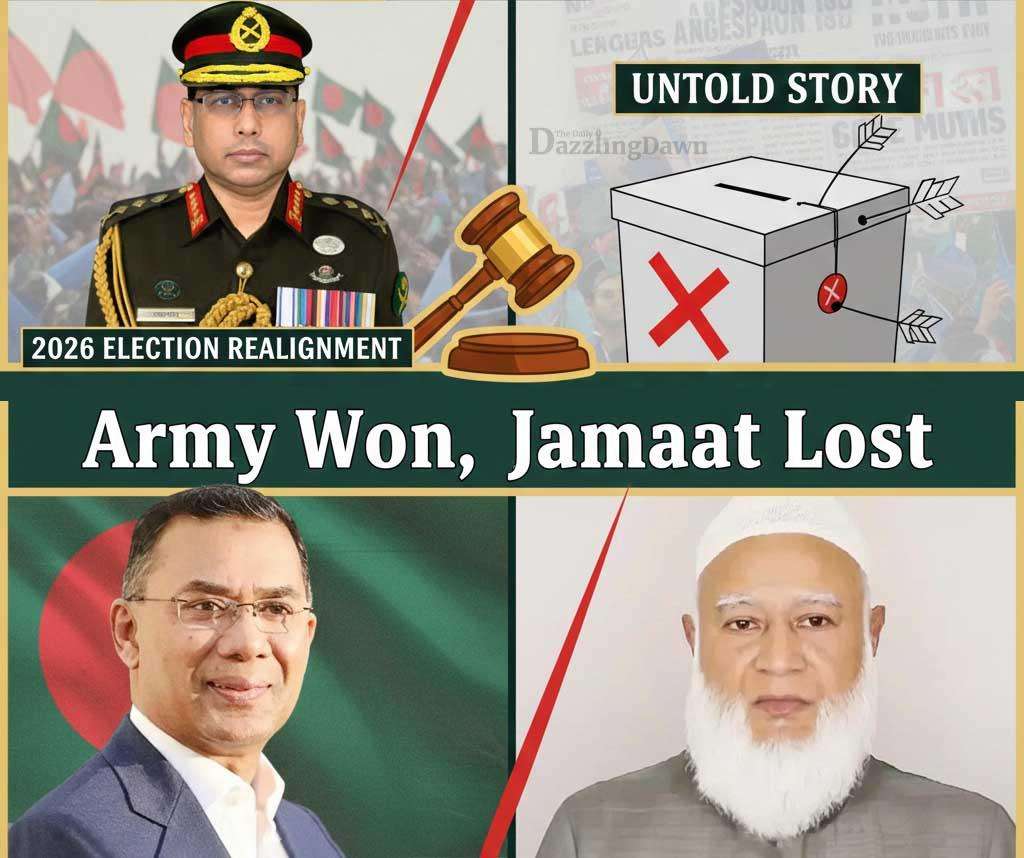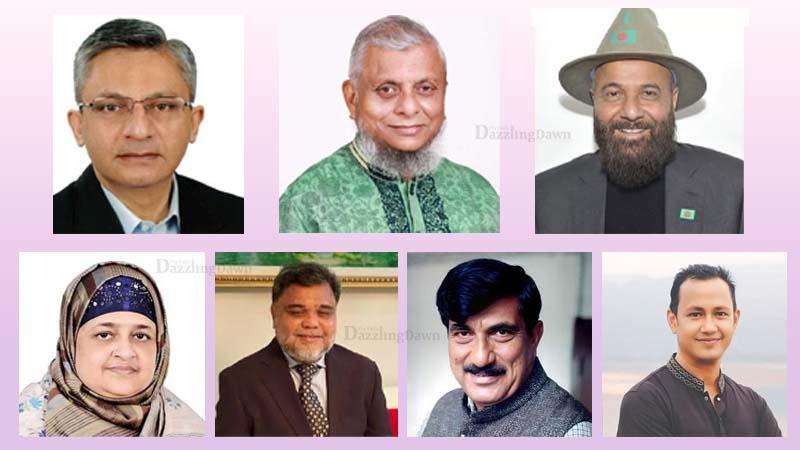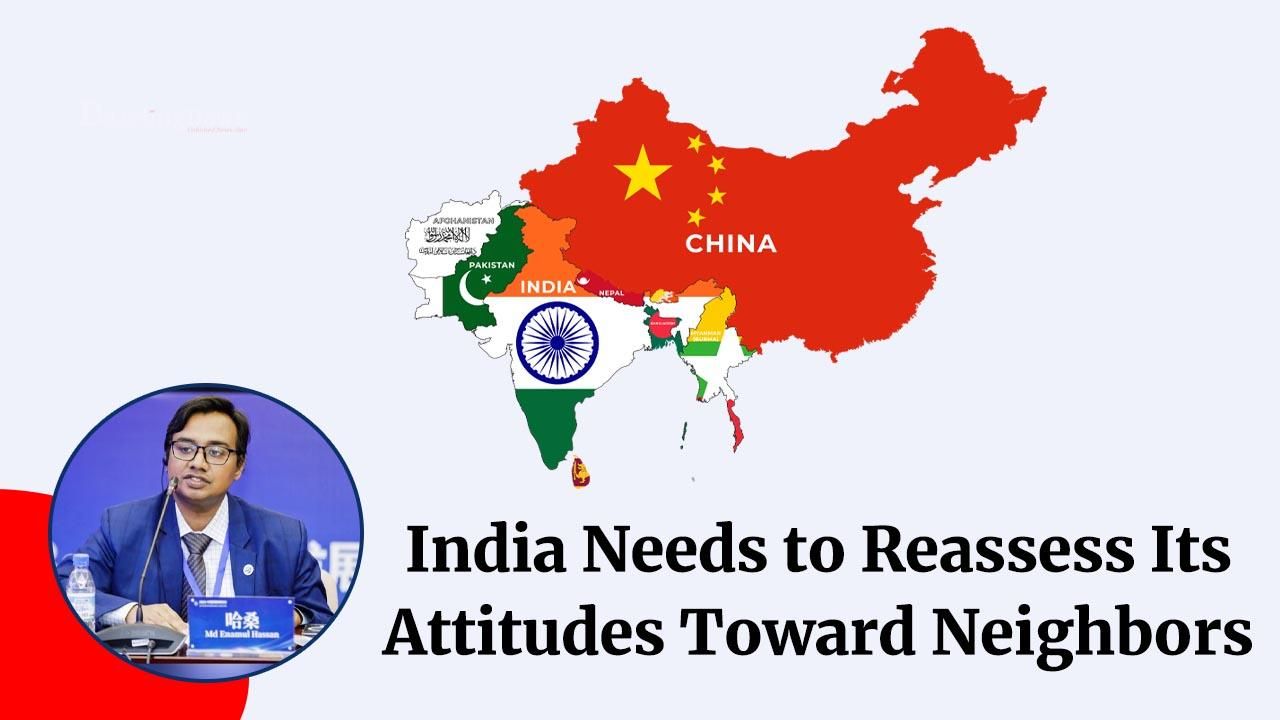India is the largest country in South Asia, both in terms of territory and population, and it boasts the fifth-largest economy in the world. However, according to the Asian Development Bank (ADB), 21.9 percent of its population still lives below the national poverty line. Last year, India ranked 49th in the global poverty index.
More than 360 million Indians still cannot reportedly afford three square meals a day. Approximately 50 million people in India still use open toilets, according to a UNICEF report. Additionally, the overall illiteracy rate in rural areas last year was 35.3 percent, while in urban areas, it was 20.5 percent.
India shares a land border of 15,106.7 km and a coastline of 7,516.6 km, including its island territories. It shares land borders with Bangladesh, Pakistan, China, Nepal, Myanmar, Bhutan, and Afghanistan, and has maritime borders with Sri Lanka, Maldives, Thailand, and Indonesia.
When it comes to its relationships with neighboring countries, India often struggles to maintain good ties. These relationships have, at times, turned violent and bloody.
People in India's neighboring countries hoped for improvements in relations following Prime Minister Narendra Modi's declaration that his foreign policy would actively focus on strengthening ties with neighbors through the "Neighborhood First" policy. However, during his tenure, Modi has largely failed to enhance India’s relationships with these countries. In some instances, relations have deteriorated, which has dashed the hopes of the people in the region.
International relations and security analysts suggest that India enjoyed the closest relationships with only the government of Bangladesh, which was recently toppled in a mass uprising. Despite claims of having developed bilateral relations with Bangladesh beyond a simple strategic partnership, many Bangladeshis remained dissatisfied with India's policies toward their country during the tenure of the ousted regime. They observed their government acquiescing to numerous Indian demands, including granting transit facilities. Conversely, India did not fulfill critical requests from Bangladesh, such as signing the much-needed Teesta Water Treaty or halting the deaths of Bangladeshi citizens along the border.
Many Bangladeshis were then taken aback when India insisted on signing a defense treaty while failing to address any of the pressing demands from Bangladesh. Moreover, there is a growing belief among Bangladeshis that India played a role in undermining democracy in their country. Many hold grievances against India for the persecution, forced disappearances, and violence against opposition leaders and activists during the Sheikh Hasina regime.
Additionally, the world has witnessed clashes between Indian border forces and their Chinese counterparts in Ladakh, resulting in casualties. Such complex relationships raise doubts about the sincerity of the Indian government's "Neighborhood First" policy. Despite suffering the most from cross-border conflicts with China, India has been accused of indiscriminately killing Bangladeshis along its own border, with similar violence occurring along the border with Pakistan. These ongoing tensions have sparked discussions about India's overall relationships with its neighbors.
Analysts believe it is high time for India to conduct a thorough reassessment of its relationships with neighboring countries. This reflection could help India recognize how it has alienated longtime allies like Nepal, Bhutan, Maldives, Sri Lanka, and Bangladesh. If India genuinely wants to foster better relations with its immediate neighbors, it needs to reconsider its policy toward Pakistan.
Such introspection is crucial for India. It could help the country understand that its "big brother" attitude, desire for regional dominance, and self-serving mentality have strained relations with its neighbors. Consequently, most people in South Asian countries do not see India as an ally but rather as a narrow-minded hegemon.
Against this backdrop, India anticipates securing a permanent seat in the potentially reformed United Nations Security Council (UNSC). However, India must realize that establishing friendly relations with its neighbors is essential to achieve this goal. No nation can aspire to greatness without resolving issues with its neighbors. The sooner India acknowledges this reality, the more it will benefit from positive relations with its neighboring countries.
---
The author is a journalist and columnist from Bangladesh.








.svg)

